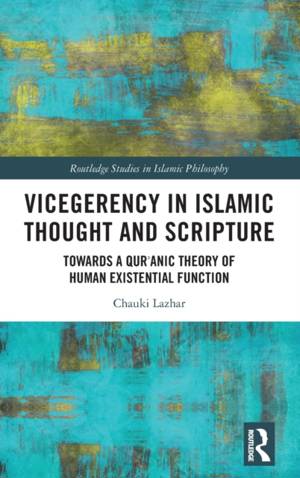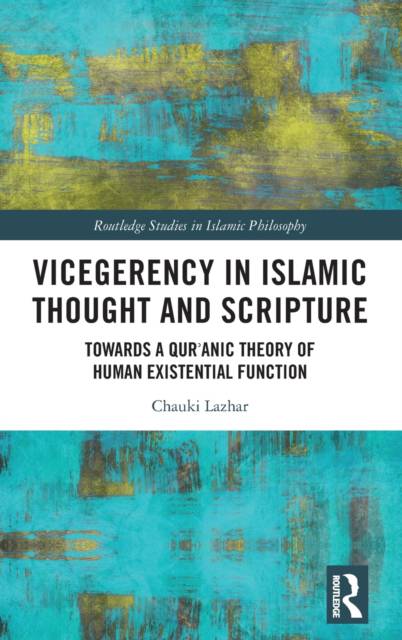
- Afhalen na 1 uur in een winkel met voorraad
- Gratis thuislevering in België vanaf € 30
- Ruim aanbod met 7 miljoen producten
- Afhalen na 1 uur in een winkel met voorraad
- Gratis thuislevering in België vanaf € 30
- Ruim aanbod met 7 miljoen producten
Vicegerency in Islamic Thought and Scripture
Towards a Qur'anic Theory of Human Existential Function
Chauki LazharOmschrijving
This book explores the reasons for the creation of humanity on Earth from the perspective of ancient and contemporary Muslim thinkers, aiming to lay the outlines of a Qurʾanic theory of human existential function.
The author proceeds from the assumption that, until now, contemporary Islamic scholarship has suffered from the absence of theorisation about a Qurʾanic conception of human existential function (vicegerency), lacking a unified philosophical and epistemological frame of reference. Challenging common perceptions among contemporary Muslim reformists regarding the human existential function, the author examines both classical and contemporary thought as well as conducting a thorough and comprehensive analysis of Qurʾanic passages that ground the theory of vicegerency within a cosmic scheme. Ultimately, a new approach for understanding the human existential function from within the Qurʾanic worldview is proposed. For the first time then, this book offers an integral induction and categorisation of Qurʾanic teleological concepts, combining them within a coherent framework that reveals the outlines of a vicegerency theory and a Qurʾanic worldview.
Suitable for both scholars and laypersons, the book serves as a landmark textbook in the fields of Islamic Philosophy, Theological Anthropology and Qurʾanic Studies.
Specificaties
Betrokkenen
- Auteur(s):
- Uitgeverij:
Inhoud
- Aantal bladzijden:
- 276
- Taal:
- Engels
- Reeks:
Eigenschappen
- Productcode (EAN):
- 9781032372211
- Verschijningsdatum:
- 28/04/2023
- Uitvoering:
- Hardcover
- Formaat:
- Genaaid
- Afmetingen:
- 156 mm x 234 mm
- Gewicht:
- 576 g

Alleen bij Standaard Boekhandel
Beoordelingen
We publiceren alleen reviews die voldoen aan de voorwaarden voor reviews. Bekijk onze voorwaarden voor reviews.











